
When it comes to sustainable fertilizer options, flies aren’t quick to come to mind. But the truth is, a black soldier fly composting system is one of the quickest, most convenient ways to break down food scraps to turn them into something useful.
As with all forms of composting, the goal of a black soldier fly composting system is to turn waste material into something valuable.
Instead of fertilizer, you’re creating a stellar food supply for backyard livestock.
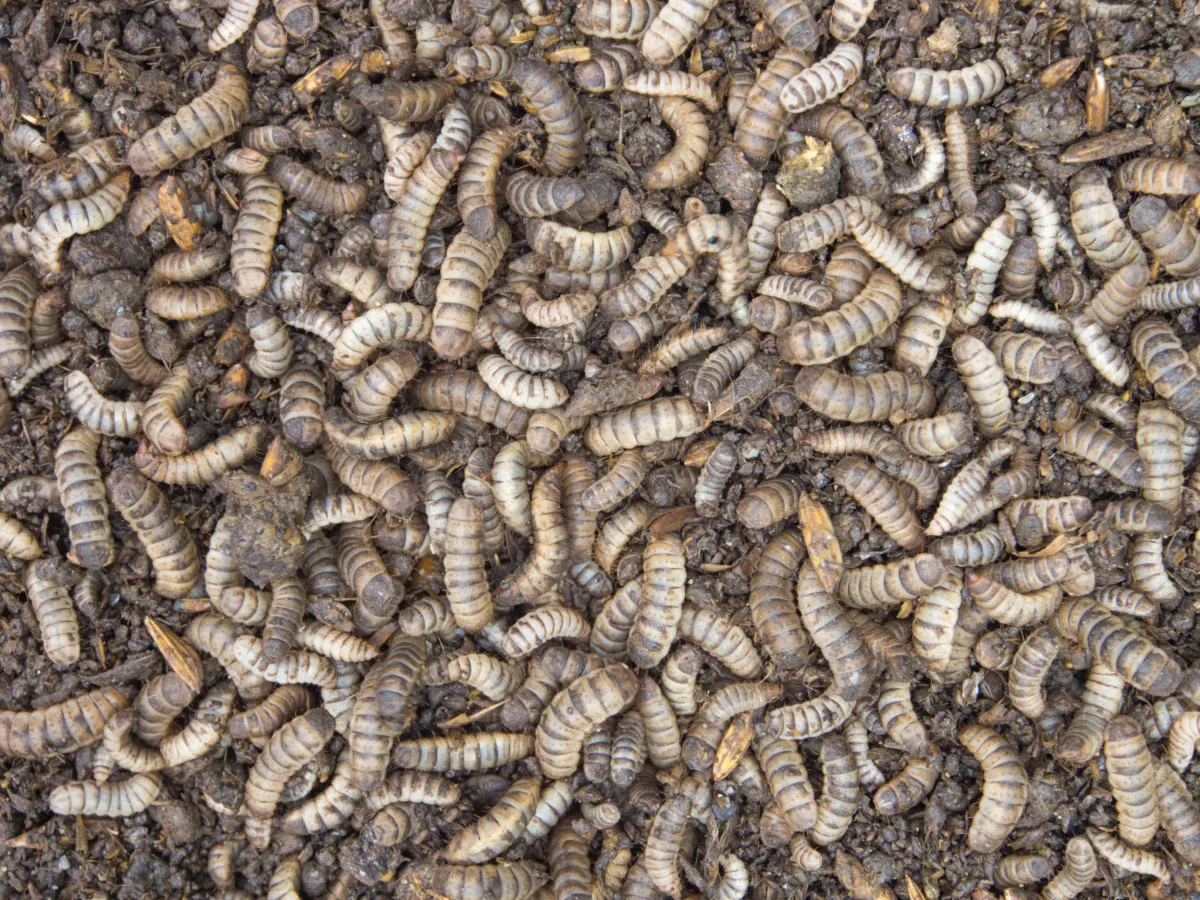
With this system, a harmless fly chews through your manure, meat, and food scraps, transforming them into fat grubs that chickens love to snack on. This is an excellent way to use up animal carcasses and other pungent material that takes months or longer to break down through traditional composting.
If you have chickens or a large garden, you’re doing yourself a disservice not to consider setting up this composter. Learn here why you need a black soldier fly composting system and what it takes to set up your own.
About the Black Soldier Fly
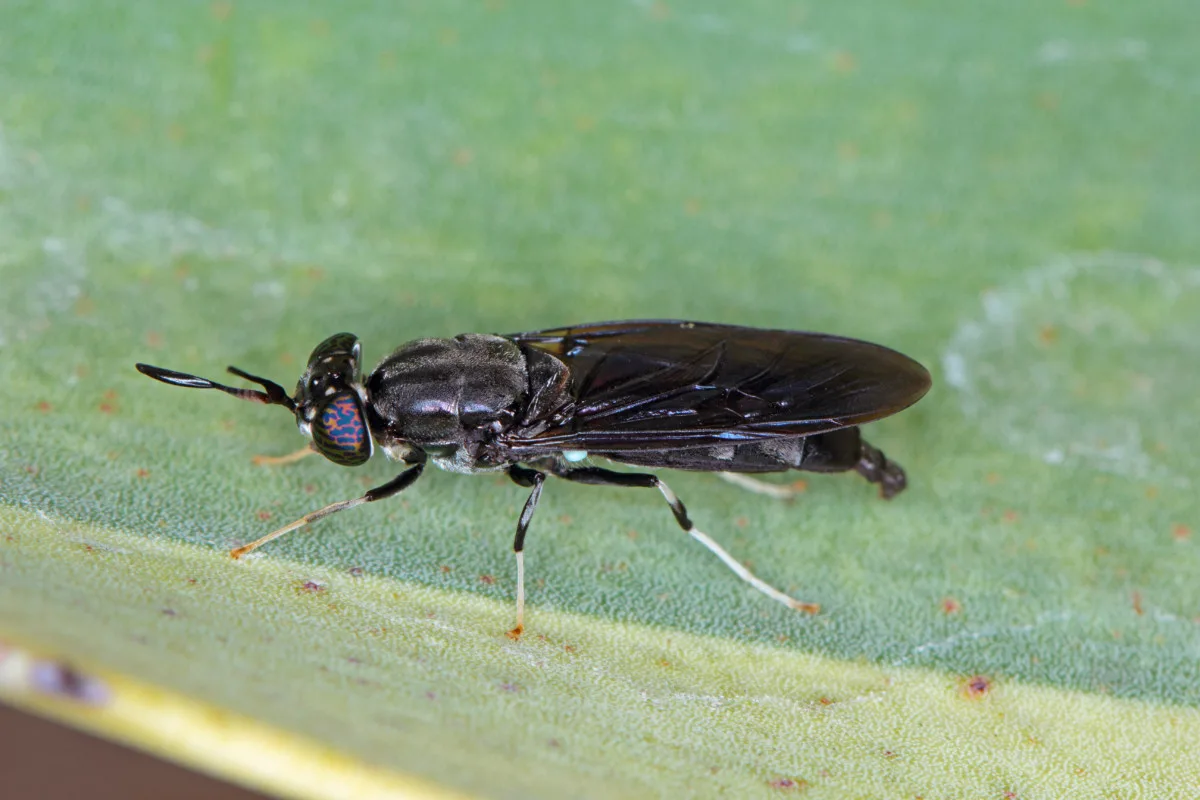
Don’t confuse the black soldier fly (Hermetia Illucens) with your standard household pest.
These insects are larger than standard houseflies (about half an inch) and more closely resemble black wasps. They lack mouths and stingers—in fact, they only survive in the fly stage of development for two days, during which they mate and lay eggs before dying.
Though they thrive best in tropical and subtropical regions, you can find black soldier flies throughout America.
You’ll rarely find this insect in your home, as they prefer spending their limited time around manure or compost piles where they lay their eggs.
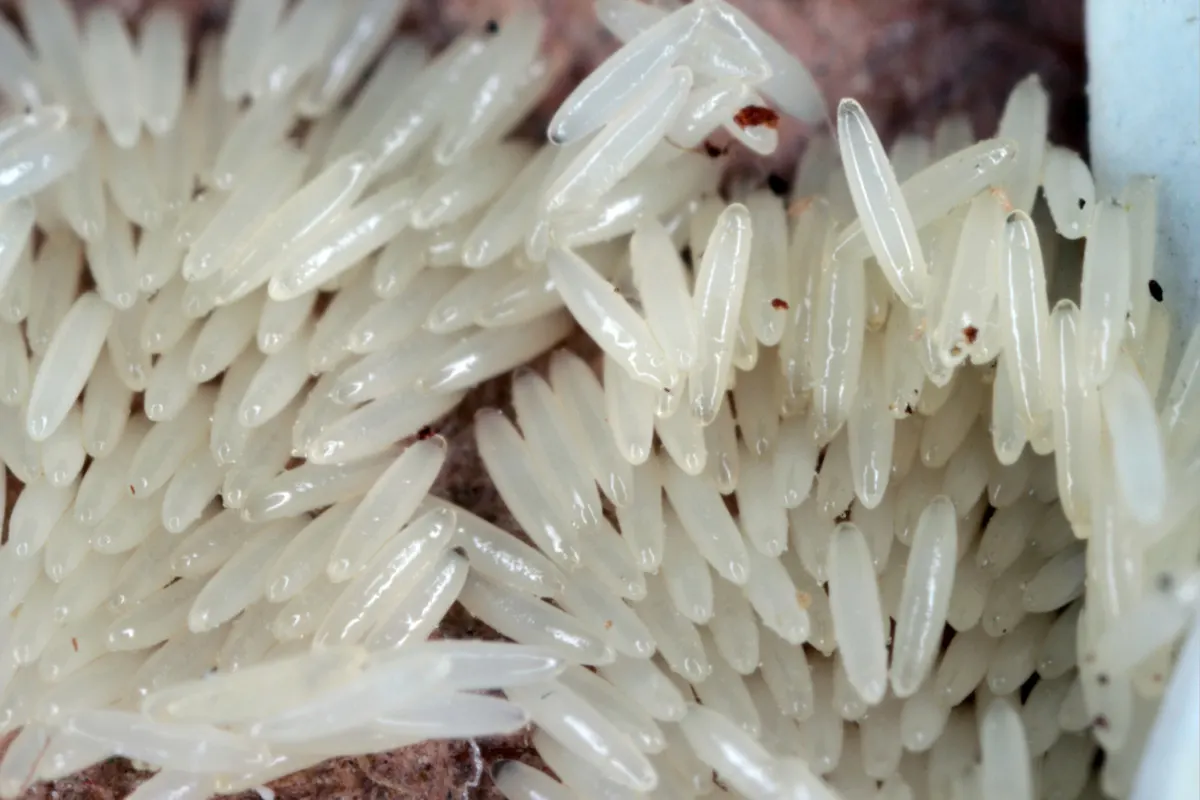
The inch-long, whitish larva that hatches out will make quick work of any garbage, chewing through the detritus within a matter of days.
As an added benefit, the flies turn your garbage into a form that’s easier for worms to digest, making it the perfect pairing for a worm composting system. In fact, if you’re used to seeing giant maggots in your compost pile, then odds are you already are familiar with black soldier flies.
Note: If you want to encourage both species to thrive in the same system, bury any food scraps at least six inches into the bin. This makes them accessible to worms, while flies will eat what’s on the surface. That way, the two won’t interfere with each other.
7 Benefits of Black Soldier Fly Composting
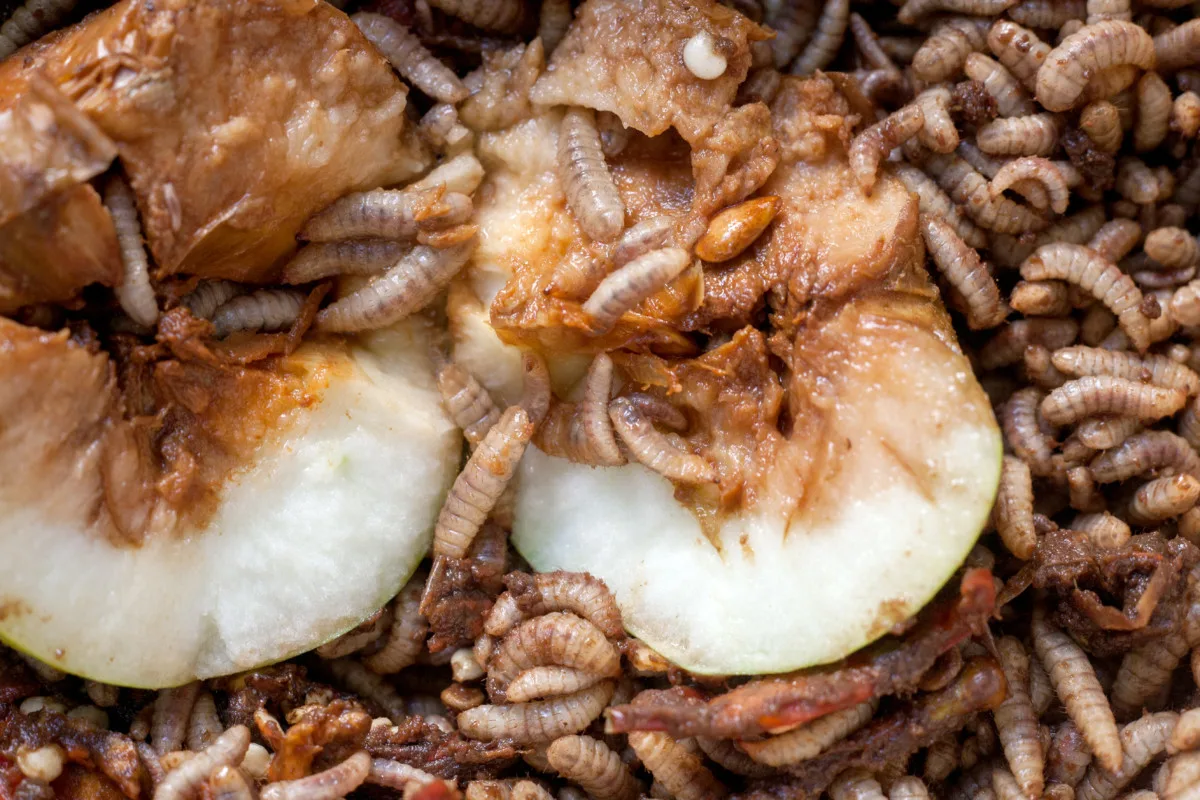
There’s a lot to like about a black soldier fly composting system. Here are some of the benefits.
Breaks Down Food Fast:
As black soldier fly larva tends to feast on nitrogen-rich materials, they can make quick work of kitchen scraps. If you have a small composting system, you can expect them to go through around a kilogram of food a day—far faster results than what you’ll get with worms.
Animal Products are Allowed:
Beyond manure, you can also add meat and dairy products to a black soldier fly composting bin—regular composting systems, in contrast, can usually only handle plant-based material.
Easy Protein Source for Poultry:
Chickens, ducks, and other backyard birds adore black soldier fly larva, and the fat grubs offer them a nutrient-rich snack that’s up to 42% protein and 35% fat. You can even build your composting system to harvest the larva in buckets for extra convenient snacking. In fact, some believe that this larva has potential as a more sustainable form of commercial animal feed. And if you’re extra adventurous, the grubs are entirely edible for humans, too.
Breaks Down Carcasses Without Smell:
If you butcher animals at home, you might be left without a plan for the resulting carcass. Toss it into a black soldier fly composter, and it will disappear in days—no smell or inconvenience.
Keeps Pest Flies Far Away:
Counterintuitive as it may seem to use flies to keep other flies away, maintaining habitat space for mild-mannered black soldier flies means you may have fewer pest flies around. This is a time-tested strategy in the American South where they were encouraged around outhouses and nicknamed ‘privy flies’ for their eating habits.
Closed Loop Composting System for Livestock:
Black soldier fly composters are the perfect complement to keeping meat chickens. You can toss the remnants in the bin after butchering day, and the resulting grubs will help feed your next generation of chickens.
Reduces Disease Transmission:
Due to their feeding efficiency, black soldier flies break down manure and rotting garbage before other flies can find it, which significantly reduces the risk of disease transmission.
Inspiration for How to Set Up a Black Soldier Fly Composting System
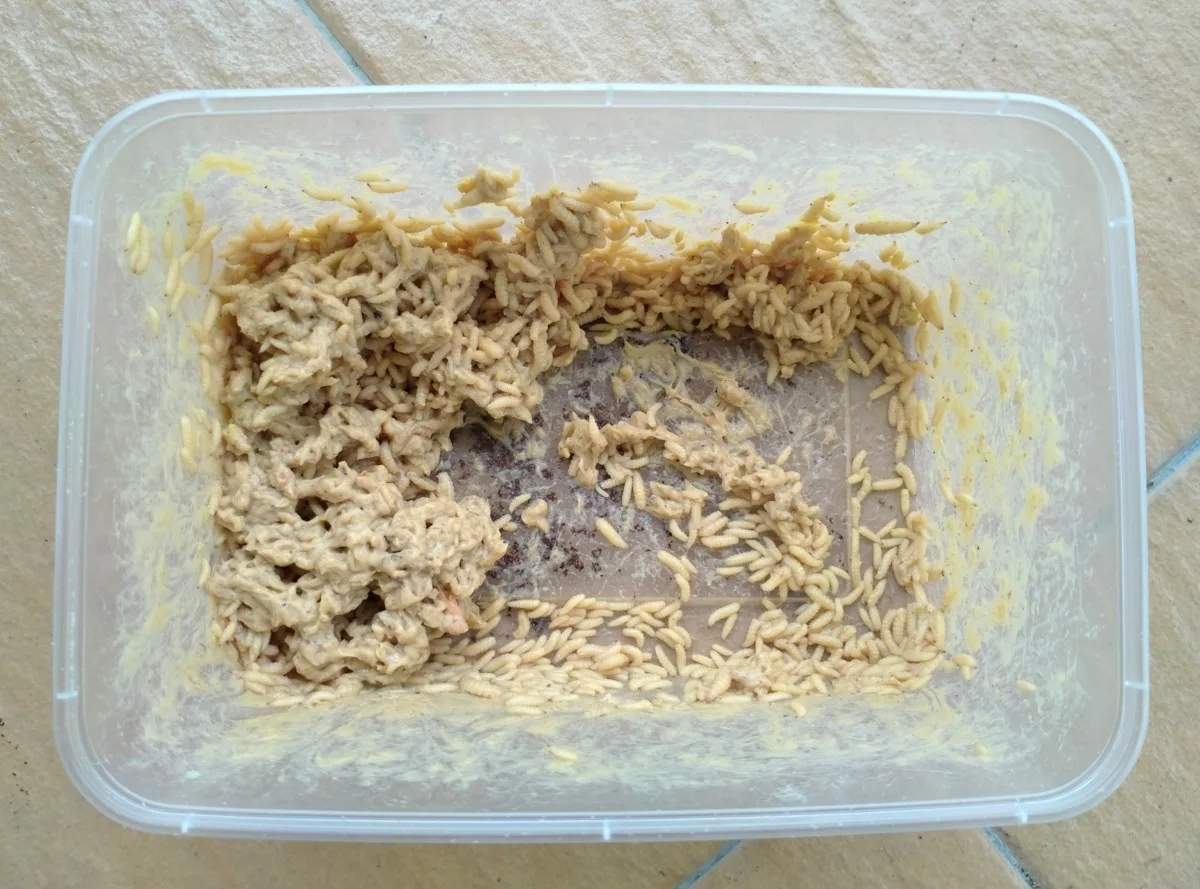
Ready to start composting with black soldier flies? The process is easier than you might expect.
Though plans vary online and can be as complicated as desired, the basic requirement is that you provide the flies with a container filled with organic material. It needs to have a drainage hole on the bottom so that it doesn’t flood, and any lid should have gaps for flies to flit in and out of.
For best results, put absorbent material (such as shredded paper, coffee grounds, or wood shavings) in the bottom few inches of the bin. You can then add manure, kitchen scraps, or any other available organic material on top. The system should soon start attracting black soldier flies, and once you get a few, others will be drawn over, and the population will increase rapidly.
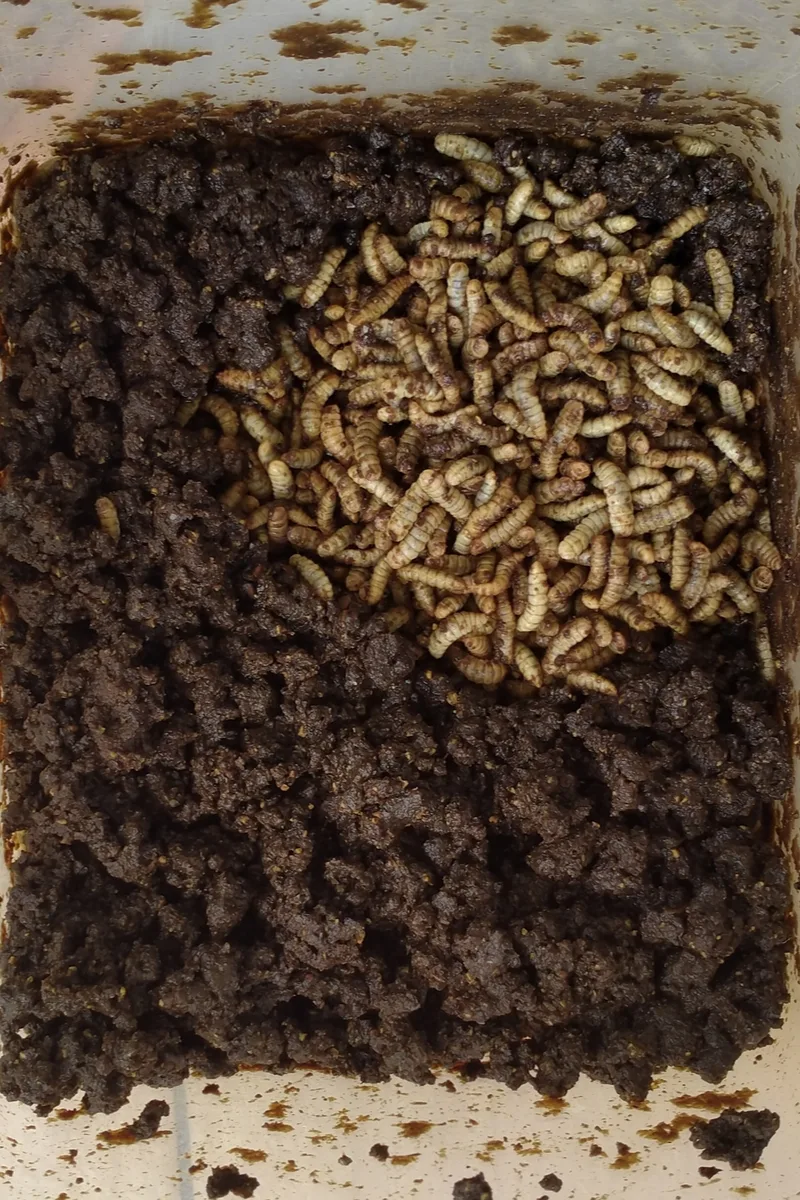
This basic bin system works well for breaking down waste material. If you want to harvest the larva, consider building a composting system with tubing on the sides to direct the grubs into a collection chamber. Or, better yet, put the composter in your chicken coop so the birds can forage for their own dinner.
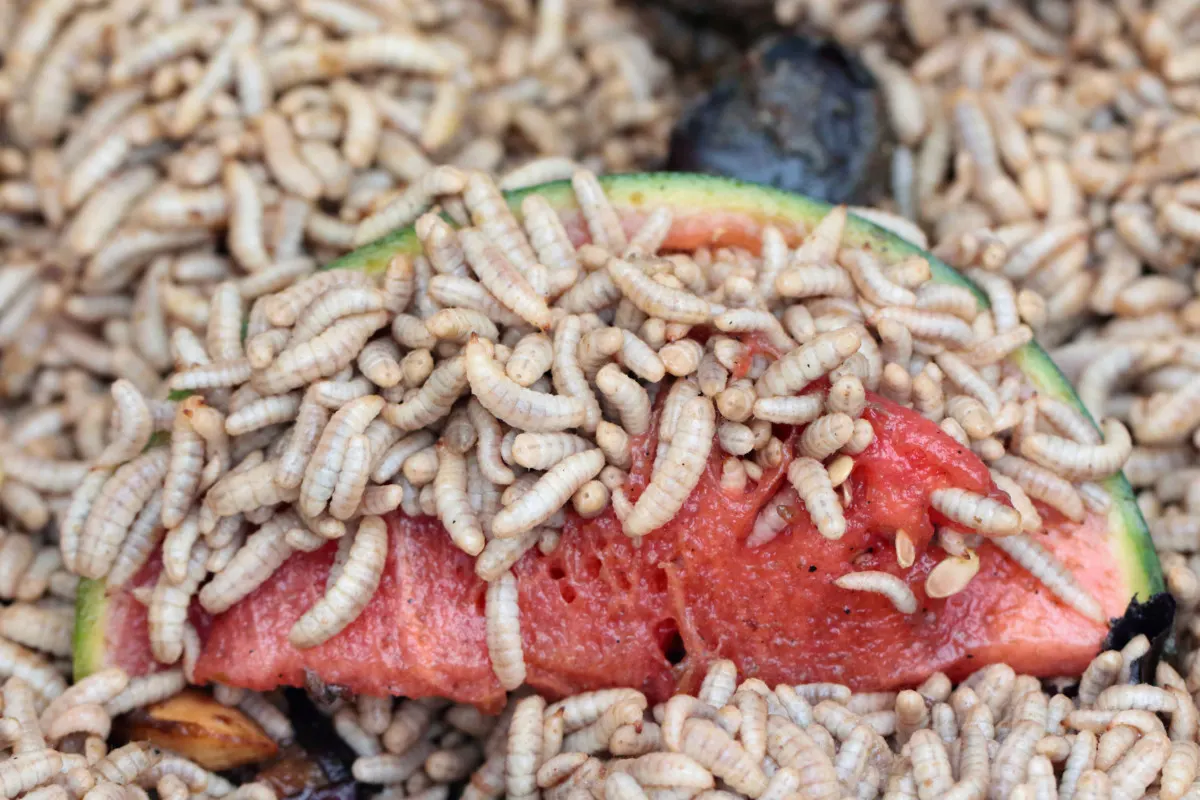
Here are some plans for inspiration.
Community Chickens shares a plan for building a composter from cinder blocks and two plastic bins, one large (50 gallons or more) for composting and one smaller for collecting the larva.
Create a smaller scale, more contained composting system with instructions from Treehugger. It’s practical for those who want to dabble in fly composting without committing to a massive system.
Nature’s Always Right’s video instructions demonstrate how to build a larger scale soldier fly composter with plastic bins and plywood for placement directly in the chicken coop.
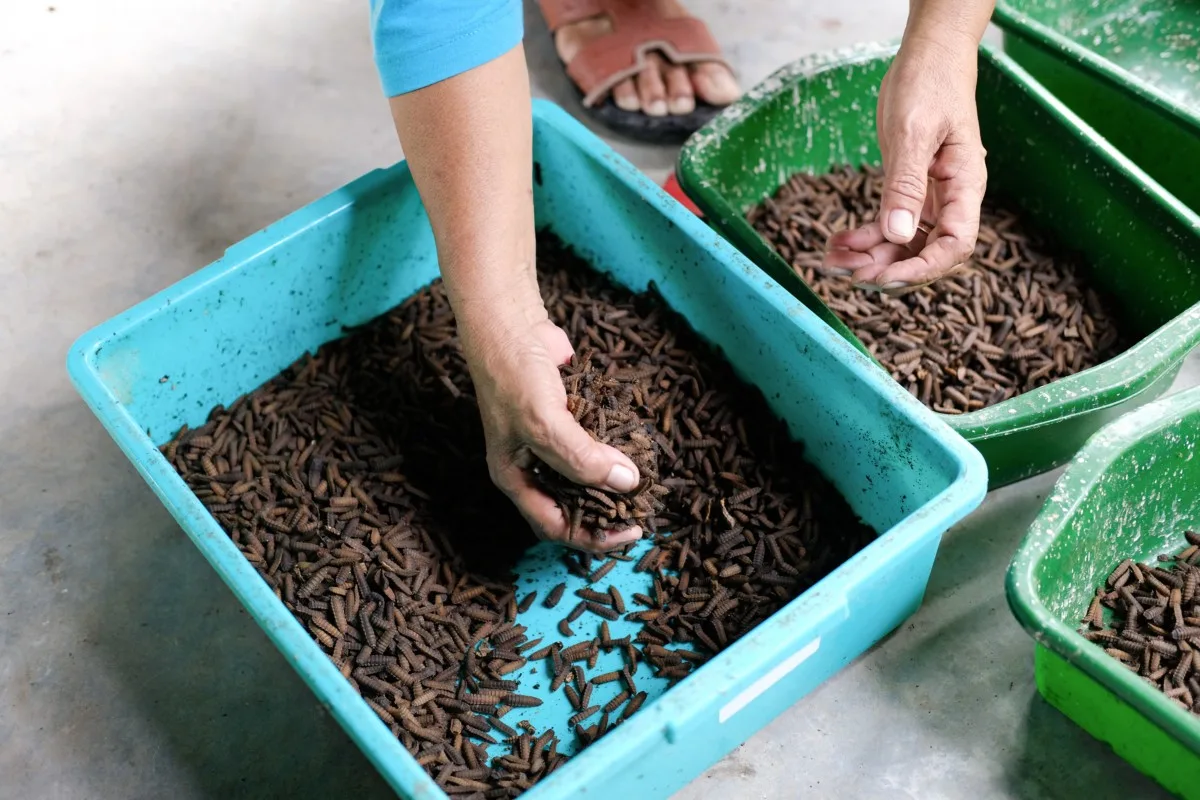
Not interested in DIY? It’s also possible to purchase pre-made fly larva composters. And for those who merely want to capitalize on their nutrient content, you can buy dried soldier fly larva online for use as chicken and fish feed.
Regardless of your scale, transforming your home waste into black soldier fly larva is a smart, sustainable, and cost-effective composting method that your chickens will adore. Try it today, and you’ll find that there’s a lot to like about the humble ‘privy fly’.
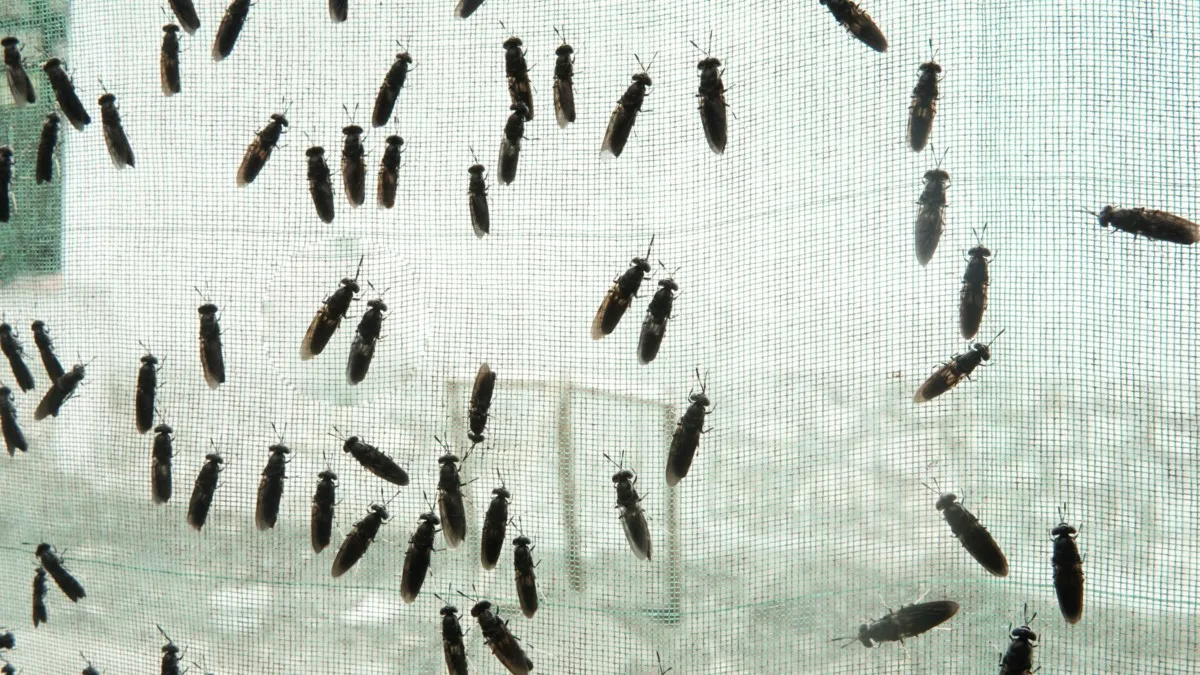
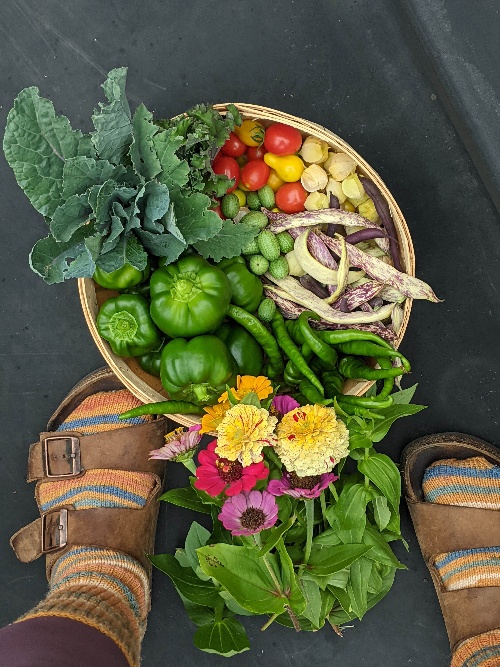
Get the famous Rural Sprout newsletter delivered to your inbox.
Including Sunday musings from our editor, Tracey, as well as “What’s Up Wednesday” our roundup of what’s in season and new article updates and alerts.

